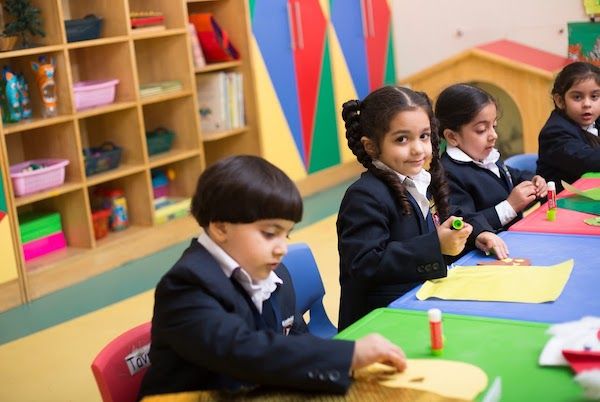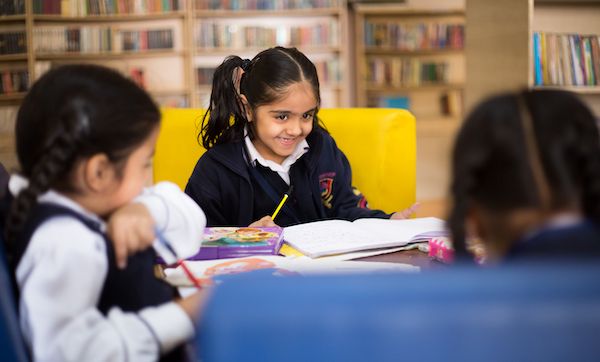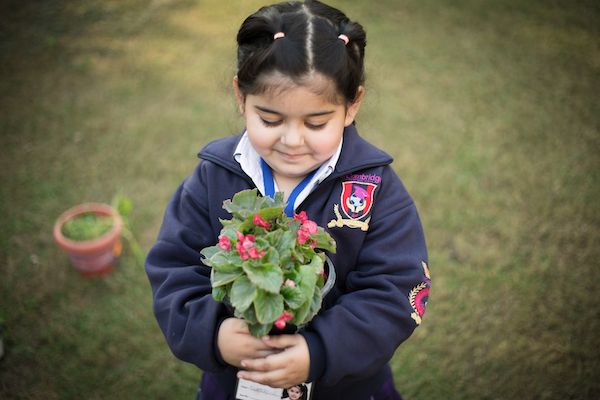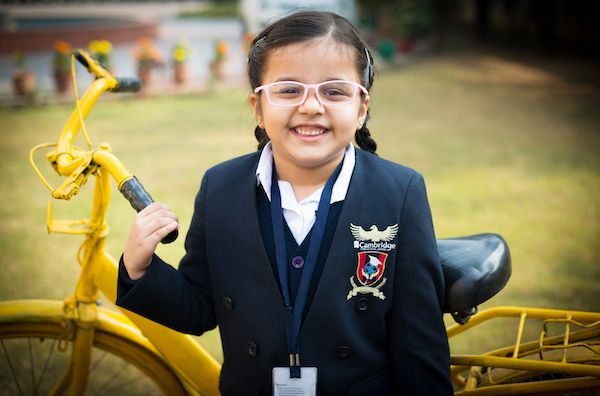Education at Cambridge International School
The Cambridge Innovative School Curriculum has been designed keeping in mind the pedagogic needs of the regions our schools are based in and connecting it to international standards. Our curriculum has been developed by carrying out ongoing small-scale research projects, pilot projects and action research.
We have tried to create a flexible curricular model that can be personalized to the needs of varied learners. Our curriculum not only covers academic areas but also covers the social, cultural issues and challenges that the 21st century poses for young people. Our students are free to choose from a range of curriculums.
Primary School Education
Age Group — 6-11 Years
Cambridge Innovative School offers a curriculum which is balanced and broadly based for the young girls to start the journey of education without burden or fear. Nurturing environment of opportunities helps in academic and co-scholastic develop curiosity unlimited, which ensures that students have fun, play and aim to achieve high.
Primary education consists of an year cycle: first to fifth classes. The primary curriculum aims to provide a broad learning experience and encourages a rich variety of approaches to teaching and learning that cater to the varied needs of individual children. The primary curriculum is designed to nurture the child in all dimensions of his or her life—spiritual, moral, cognitive, emotional, imaginative, aesthetic, social and physical.
Curriculum
The Primary School Curriculum outlines the contents of children’s learning—the what and how of children’s learning—for children’s first eight years in school, from junior infants to sixth class. The curriculum aims to:
- Develop each child’s potential to the full
- Encourage love of learning
- Help children develop skills which will be useful throughout life
The curriculum has range of Subjects:
- Language: English, Punjabi, Hindi and French
- Mathematics
- Social Science: History, Geography and Civics
- Arts education: Visual Arts, Music and Drama
- Physical education
- Value Education with Real Projects
- Spiritual Education
- Activities and Clubs are core of learning-teaching.
Assessment
Assessment in Primary School is about building a picture over time of a child’s learning progress across the curriculum. The teacher uses different ways to gather evidence about how and what the child learns on an ongoing basis. This information is used to celebrate the child’s current learning, and to help make decisions about next steps for future learning.







